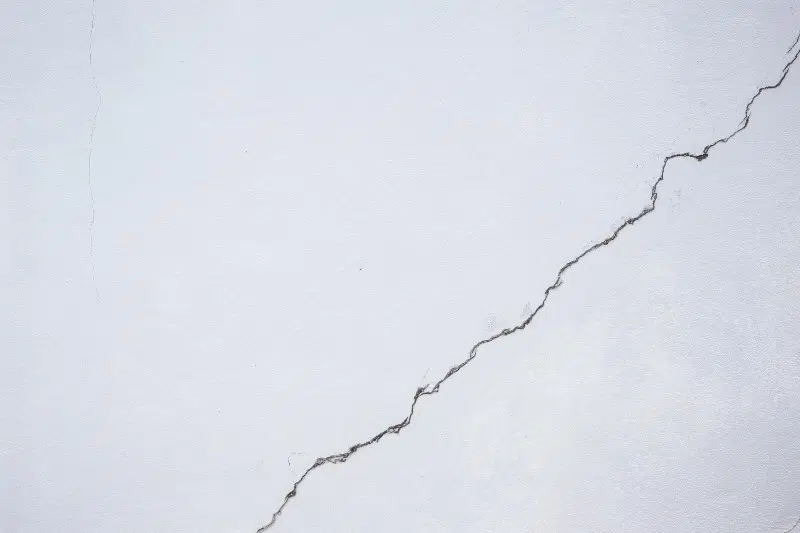The foundation of a home is the lowest, most load-bearing part of the structure. Its integrity is critical to the overall constitution of the home, and when cracks form in the foundation, it is something that deserves immediate attention from the homeowner.
With enough time and variations in climate and moisture, most home foundations will develop cracks. But are cracks in a foundation normal? The key is to know the difference between a superficial, surface-level crack and a crack that could be a sign of a potentially serious foundation issue that needs to be resolved right away.
In this article, the foundation and waterproofing experts at Helitech are tackling the topic of foundation cracks, giving you some ‘crack facts’ that will help you determine what, if any, steps you should take if you notice cracks in your foundation.
After a home is constructed, it is going to take months, years, or even decades to fully settle into place.
As the home settles into place, it’s common to notice cracks developing in the foundation. Sometimes, these cracks can show up within the first year after the home’s construction.
Generally speaking, there are five categories of foundation cracks. Let’s explore each one.
Vertical foundation cracks are some of the most common cracks we see in homes throughout our region of Illinois, Missouri, Southeastern Iowa, and Western Kentucky. These types of cracks should cause the least amount of concern, as they’re not typically indicative of a broader foundation issue.
Most vertical foundation cracks are caused by lateral pressure created by water accumulation along the outer wall of the foundation. To address this, proper water management practices should be employed, including routing runoff rain at least five feet away from the home.
Patching and filling vertical foundation cracks is fairly straightforward using water-resistant epoxy or injected polyurethane filler.
This is where things can get scary for homeowners. Horizontal foundation cracks are typically a symptom of mounting ground forces that can significantly compromise the load-bearing performance of a home’s foundation.
Horizontal cracks typically require immediate analysis and expert foundation repair from a qualified foundation repair company like Helitech.
Allowing a horizontal foundation crack to get worse could result in catastrophic damage to the rest of the house.
Diagonal foundation cracks can be a bit tricky, as their causes can be mixed. It’s possible that a small diagonal crack can be quickly patched and considered resolved unless it grows over time.
All diagonal foundation cracks should be monitored over time to ensure they do not develop into a bigger problem.

Not to be confused with diagonal cracks, stair-step foundation cracks can be considered the most dangerous to the overall integrity of the foundation.
Caused by differential settlement, stair-step cracks typically originate at a joint and then taper down or up. They’re most commonly seen in foundations composed of concrete blocks or traditional brick.
Stair-step cracks in a foundation should be immediately addressed.
Most basement floor cracks or cracks in a subfloor are generally considered cosmetic unless the width of the crack exceeds half an inch. If you notice a crack forming in your basement or subfloor, wait at least 12 months to see how bad it gets. If the width exceeds half an inch anywhere along the crack, call Helitech to discuss your options.
Most basement and concrete floor cracks can be filled with caulk or hydraulic cement. In more serious cases, basement cracks can be a part of a more comprehensive house-settling issue that might need more extensive work to repair.
So, when should you leave a foundation crack alone, and when should you call in the professionals from Helitech for expert repair?
The answer is simple: whenever you want peace of mind.
If your foundation crack is minor and can be fixed with a quick patching job, we’ll tell you. And if your foundation crack is a sign of a more severe foundation issue, we’ll explain what’s going on and what it will take to remedy the situation.
A visit from Helitech will always result in you knowing exactly what you’re dealing with and what the best course of action is. So, you have nothing to lose, even if your foundation crack is nothing to be too concerned about.
Need expert foundation crack advice? We’re here for you! Contact Helitech online now or call 800-246-9721 and let us put your foundation crack worries to rest.